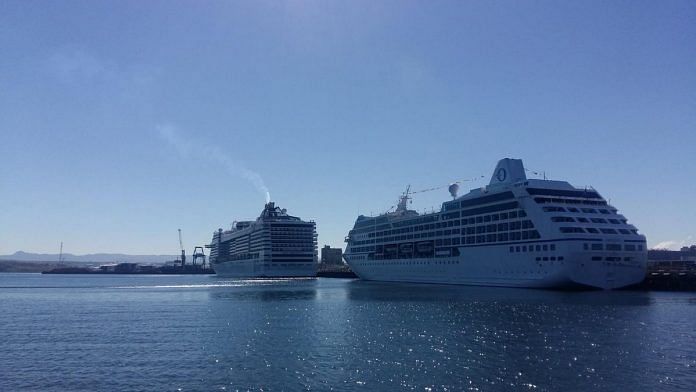The sound of ferries chugging their way through the world’s coastal waterways could become a thing of the past.
In August 2019, the electric ferry Ellen began making regular 40 kilometre return-trips between two Danish Baltic islands. Having successfully completed 10 months of sea trials, Ellen could now pave the way for the wider adoption of electric shipping.
Curbing emissions
Most of the world’s traded goods are transported by ships and boats. Sailing vast distances around the world requires equally vast amounts of fuel – some of the largest tankers hold 16,000 cubic metres of diesel. And like all transport that rely on fossil fuels, that means carbon emissions and pollution.
There has already been a shift toward using hybrid diesel-electric engines in ships, but Ellen is powered by a fully-electric drivetrain. The e-ferry is almost 60 metres long and its 4.3 megawatt motor propels it at speeds between 24-28 kilometres per hour. Assuming it was powered by 100% renewable electricity, Ellen would reduce carbon emissions by 2,250 tonnes of CO2 per year.
Although that’s a drop in the ocean – maritime transport is currently responsible for 900 million tonnes of CO2 a year – it is an important milestone.
Ellen has an energy efficiency rating of 85% – almost twice that of diesel-powered craft, according to the Euractiv news service. Its development was partially funded by the European Union’s Horizon 2020 research programme, which provides investment for green projects.
Decarbonizing shipping
The energy efficiency of electric-powered shipping forms a vital part of the overall cost. In many parts of the world, renewable energy has become more affordable than that generated by coal, oil or gas. The sooner the cost of the ship is offset by savings in energy, the more attractive an investment it becomes to a shipping operator. A similar equation faces anyone buying an electric car. The initial outlay may be higher than for a petrol- or diesel-run vehicle, but the savings in fuel costs eventually make it worthwhile.
It could cost around $1 trillion to decarbonize the shipping sector. But in recent months, the coronavirus pandemic has brought international economies to a standstill and halted the flow of goods and people around the world. In this context, the shipping industry may hesitate to invest in the latest powertrains, even if it makes sense on paper.
Ensuring the environment doesn’t become one of the biggest casualties of COVID-19 will call for a concerted effort to keep up investment in clean-tech alternatives. That may well include incentives from national and state governments to make sure switching to greener sources of power remains an attractive option.
World Economic Forum Founder and Executive Chairman Klaus Schwab has called for a “comprehensive approach” to shape the post-Covid future, integrating “all organizations and people with innovative ideas”.
“It’s not enough to change a few policies or address short-term issues, what we need is a change of mindset, of lifestyles, of business models,” he said in his closing comments at the launch of the Forum’s Great Reset initiative.
Sean Fleming, Senior Writer, Formative Content
This article first appeared in the World Economic Forum.
Also read: 10 cases of piracy, armed robbery on Indian and Bangladeshi ships this year, report says



